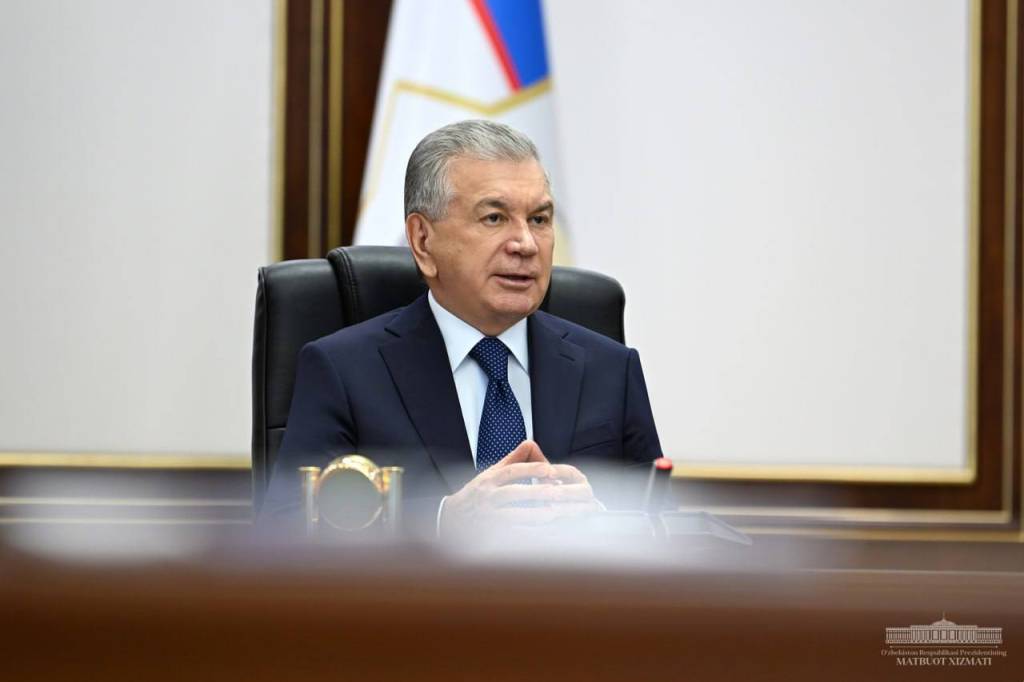Tashkent: President of Uzbekistan Shavkat Mirziyoyev reviewed a presentation focused on achievements in road infrastructure and future priorities.
Automobile roads play a crucial role in the country’s economy, thus receiving special attention for development. The scale and quality of work in this area have significantly increased. For comparison, between 2009 and 2016, 9 trillion soums were allocated for the construction and repair of roads, resulting in over 1,000 kilometers of new roads and the repair of 20,000 kilometers.
However, in the past eight years, these figures have increased sixfold: 58 trillion soums have been directed towards road development, allowing for the construction of 2,000 kilometers of new roads and the repair of 100,000 kilometers.
Under the presidential decree from 10 October 2023, the road management system underwent significant changes. Responsibilities for design, construction, and maintenance of roads have been clearly delineated, along with separating the functions of the customer and contractor.
There is now a special emphasis on scientifically justified construction methods. By moving away from standardized design solutions, road services have adopted an individual approach that considers the geological and environmental features of each region. This has involved the procurement of 1,700 units of specialized machinery, and road enterprises have received new types of asphalt and cement concrete pavements. As a result, the quality of work has improved, with the lifespan of new roads estimated at 15–20 years, and their condition evaluated based on 42 different parameters. Additionally, non-destructive quality control of road surfaces and underground utilities is conducted with equipment provided by the World Bank.
Street maintenance is also part of the “Green Space” program and a cultural tradition of landscaping. Each season, trees are planted along the roadsides, and plots of land along the roads are leased for their upkeep.
The presentation also showcased projects and plans for the further development of road infrastructure. According to a UN analysis, quality roads can contribute to a GDP increase of at least 2% for Uzbekistan. Currently, six projects are being implemented in cooperation with international financial organizations for the reconstruction of 729 kilometers of roads. For example, a 240-kilometer stretch from Kungrad to Beyneu is set to be operational soon. Additional road reconstruction is planned for segments like Gulistan–Andijan, Dushanbe–Termiz, Bukhara–Turkmenbashi, and Urgench–Khazarasp.
The private sector is also being engaged in this field: the operation of 260 kilometers of regional roads has been outsourced to entrepreneurs.
Furthermore, under the Asian Development Bank project, it has been decided that the construction of 841 kilometers of roads will be entrusted exclusively to local contractors for the first time.
President Shavkat Mirziyoyev emphasized the importance of further developing international roads.
“Given Uzbekistan’s strategic location, international roads connecting cities like Andijan, Kungrad, Termiz, and Tashkent play a key role in foreign trade. These 4,000 kilometers of roads must meet the highest international standards,” he stated.
The need to expedite the construction of toll highways between Tashkent and Samarkand, as well as Tashkent and Andijan, was also noted, with the establishment of alternative free routes being enshrined in legislation.
Additionally, 4,700 overpasses require repairs, and a three-year reconstruction program will be developed for this purpose. Concurrently, 70 additional service complexes will be built along international highways to support the development of roadside infrastructure.
The president instructed to establish close cooperation with international financial institutions and to attract foreign consultants for the implementation of projects in road and water infrastructure.


